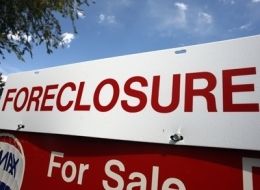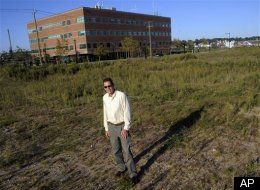In this recent article on the Washington Post website I was taken back by over all lack of understanding of how Common Interest Communities, CIC, work within the local markets. Take this....
"...recently gave rise to a proposal for a targeted rental inspection program. The plan would give county agents unprecedented access inside homes to ensure they are safe and well-maintained. County officials said an inspection program could protect property values by pressuring renters to keep up their dwellings.
Michelle Casciato, chief of the Neighborhood Services Division, recommended that the board consider creating an inspection program after noticing that as owner-occupied rates fell, building maintenance cases and code enforcement calls from residential tenants increased.
"In our experience, when you have higher rates of renter occupancies, community maintenance standards start to slide," Casciato said. "It's fairly well-documented that rental property is not maintained at the same rate."
ad_icon
State law allows counties to establish residential inspection districts, giving owners 60 days to register all rental property within those boundaries. Once the inventory list is created, agents can inspect homes to ensure they are up to code and safe. Inspectors would have access once every four years, unless a complaint is registered."
Housing Bust Spurs Rental Fears - washingtonpost.com
Funny thing I figured since this and many of the properties that are part of private communities the local government does not have this right since a communities document's would govern this as provided by the VA HOA ACt. unless they have changed the laws in Virginia.
The communities documents all have, or should, provisions for renters.Existing architectural guidelines covenants and bylaws of a community would already provide procedures for dealing with non conforming properties.
What we really have here is the this government's failure to buttress these private communities rights with legislation that would put teeth into roles of boards, overall supervision and collection of delinquent assessments.
So now local government is going to illegally go around the inherent rights of CIC's to government their own private communities and take over one function all the while doing nothing about the other issues like disclosure, assessments, board transparency, and most importantly financial viability all of which most are missing and Virginia is considered a model in CIC's.
Now take the District of Columbia, they have no HOA Act. That is right, surprise, there are no rules about Homeowner Associations. So boards, renters, contractors, the government just does what they want to do. I wonder how long before a responsible public office steps up to the plate to make this happen.
btw. here is a hint about a big problem that this story did not address. Every underwriter of loans that involve a CICs, including Fannie, Freddy, VA, HUD, FHA, all have owner to renter ratio limits. The most important one is that no more then 49 percent of the owners can be renters. It's the 51% Letter. The reality is that those number are really much higher in many cases like 75-85 percent.
So how is your State of Communities?
I guess we'll call it "Socializing Associations" without worrying about the rest.







